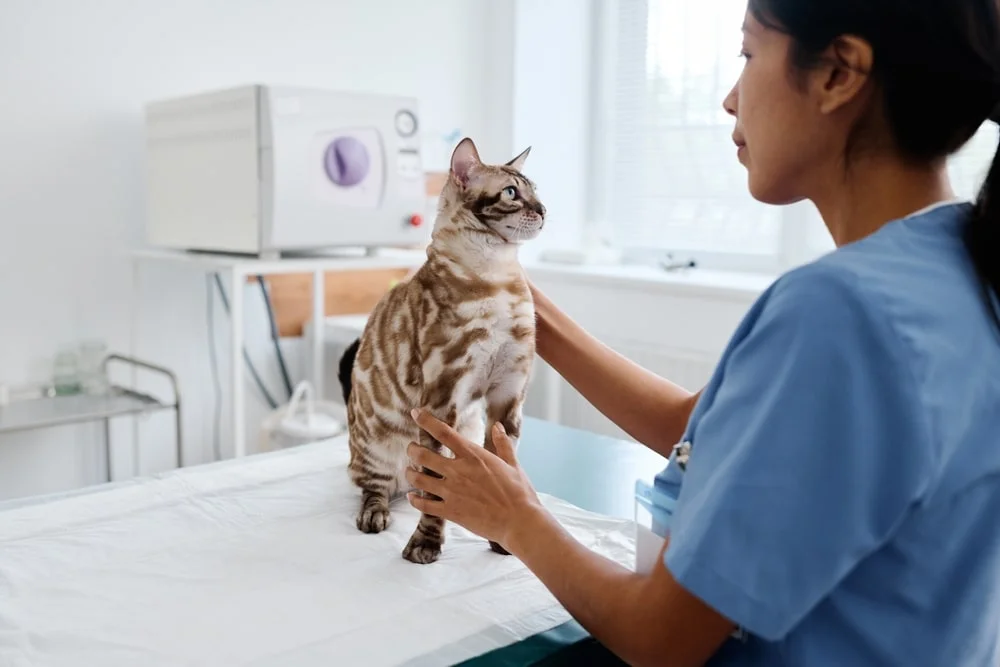PET HEALTH
Feline Hypertrophic Cardiomyopathy (HCM) is a form of heart disease in which the walls of a cat’s heart become abnormally thick.
The excessively thick heart muscle means little room is left within the heart chamber to hold blood. This, in turn, causes circulation problems, as the heart isn’t pumping a sufficient amount of blood through the cat’s body.
As a result, the cat may suffer from heart arrhythmias (an irregular heartbeat), congestive heart failure, blood clots, or even sudden death.
Hypertrophic Cardiomyopathy happens to be one of the most common forms of feline heart disease. With this in mind, it’s important to know the symptoms so that you may detect them in your cat early on and ensure he receives sufficient care and treatment.
It’s worth noting that while any cat can suffer from HCM, but it is most commonly found in males. There are also certain breeds of cats which are known to be more susceptible to this disease, including Ragdolls, Maine Coons, and Domestic Shorthairs among others.
Hypertrophic Cardiomyopathy Symptoms
One of the difficulties with HCM is that the symptoms are often quite subtle, and sometimes they are even non-existent. Common signs of hypertrophic cardiomyopathy include:
- Difficulty breathing
- Lethargy
- Loss of appetite
- Weight loss
- Heart murmur
The trouble with many of these symptoms is that they could be indicative of many different illnesses. Additionally, it’s unlikely that you would notice your cat has a heart murmur unless you listen to his chest with a stethoscope.
For this reason, Hypertrophic Cardiomyopathy often goes undiagnosed until a health crisis occurs and the symptoms are finally seen in conjunction.
How is Hypertrophic Cardiomyopathy Diagnosed?
If your veterinarian suspects that your cat is suffering from HCM he will run a series of tests to confirm the diagnosis and determine the severity of your cat’s condition.
These tests will typically include an ultrasound of your cat’s heart (called an echocardiogram), an electrocardiogram, x-rays of your cat’s chest, blood work, and possibly more.
An echocardiogram allows your veterinarian to see an image of your cat’s heart, which makes it easier for him to evaluate the function of the organ. Your vet will be able to take measurements to compare the thickness of your cat’s heart muscle over time. This test will also help him see how efficiently your cat’s heart is pumping.
An electrocardiogram is a test that measures the rhythm of your cat’s heart. This helps your vet notice any abnormality in your cat’s heartbeat.
Hypertrophic Cardiomyopathy Treatment
Because the effects of Hypertrophic Cardiomyopathy are so varied, so too are the treatments.
Often, medications can be prescribed to help regulate your cat’s heart rate and manage his pain levels. In some cases, medical procedures will be required to treat conditions such as congestive heart failure or blood clots.
Unfortunately, there is no cure for Hypertrophic Cardiomyopathy. Once your cat’s heart muscle has thickened, there is no way to reverse it. However, it is possible to manage the disease and help your cat live comfortably in spite of the condition. This is especially true if your cat is diagnosed before his HCM has become very advanced.
The best way to detect Hypertrophic Cardiomyopathy early is to ensure your cat receives regular check-ups with his veterinarian. Because many of the symptoms may seem insignificant on their own, it’s important to keep track of any abnormal behavior or illness in your cat.
Any time you notice your cat acting out of the ordinary or feeling under the weather, make a note. Keeping detailed records will help your veterinarian make an accurate diagnosis, whatever your cat’s ailment may be.
Consider Investing in Cat Insurance
Looking for more ways to protect your kitty? Consider investing in a cat insurance policy with MetLife Pet Insurance.1 Get your free quote today.

